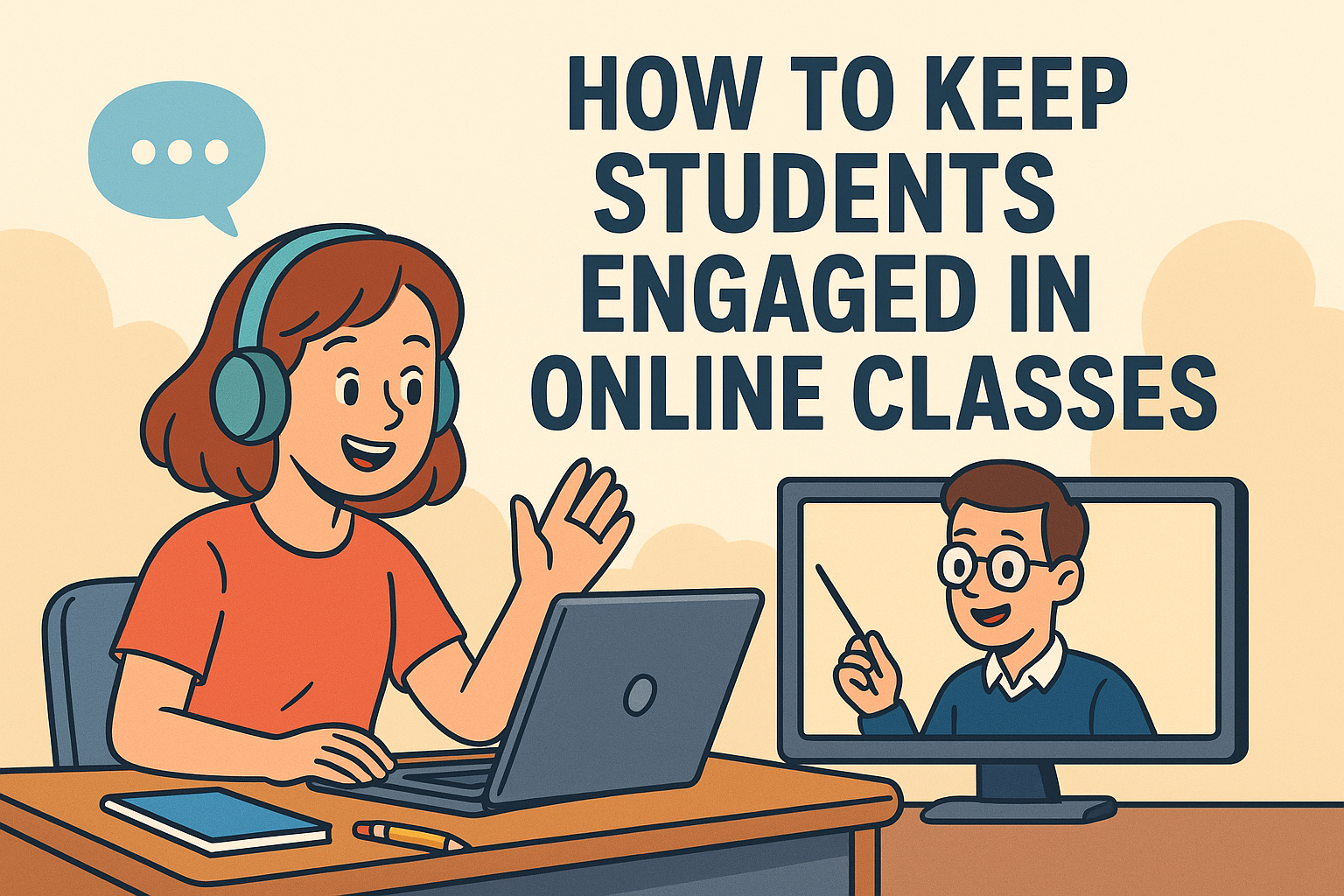Since the covid-19, there is a rise in online teaching and e-learning and it has changed the way of how teachers teach online. Whether it is virtual classroom, Blended learning, or online classes, a problem that every teacher faces is to keep the students engaged. But don’t worry because this blog will help you to solve that problem.
In this blog, you will explore everything about teaching online, distance learning, and various teacher tools that you can use to keep the students engaged in your online class.
Why is engagement challenging in a digital classroom?
Following are some reasons why engagement can feel challenging in online classes:
1. There is no physical presence during online teaching
2. There is comparatively less interaction while teaching online.
3. Since e-learning requires the internet there can be technical issues.
4. Now-a-days, kids have shorter attention spans
5. Students attend classes from their home and therefore, there can be distractions.
6. There might be poorly designed digital classroom content
7. Students can feel tired from long online teaching sessions.
Interactive tools to boost online classes engagement
You can use the following teachers tools to boost engagement in your virtual classroom:
| Purpose | Tools to Use |
|---|---|
| Real-time polling | Mentimeter, Kahoot |
| Quizzes | Google Forms, Quizizz |
| Virtual whiteboard | Miro, Jamboard |
| Collaboration | Padlet, Notion |
| Breakout discussions | Zoom Breakout Rooms, MS Teams |
| Gamification | Classcraft, Gimkit |
| Video-based learning | Edpuzzle, Loom |
How you can start every online class
Before starting with the online learning part, you can start with some warm up activities so that there is a positive learning environment. Here is what you can do:
1. Quick questions
2. Fun trivia
3. Icebreaker games
4. Short polls
5. 1-minute sharing activity
Keep Your Lessons Short and Structured
If you have a well structured way of providing online education to students then the students will definitely be engaged. Below is a sample strategy and you can also follow that making changes to the timings:
| Time | Activity |
|---|---|
| 5 minutes | Warm-up / Recap |
| 10–15 minutes | Concept Explanation |
| 10 minutes | Interactive Activity |
| 5 minutes | Practice / Problem Solving |
| Last 5 minutes | Summary & Q/A |
Encourage Participation Through Frequent Interactions
1. Asking questions every 3–5 minutes
2. Using the chat box
3. Letting the students unmute and speak
4. Using emojis for reaction
5. Doing live quizzes
Bring Real Life Examples into the Online Classes
You can hold a student's attention in an effective way, which is storytelling. You use real life examples related to the topic. Students will definitely remember a well told example and it will also reflect in their answers.
Real Life examples help students relate to the topic more effectively and it makes the topic more memorable.
For instance:
1. A science teacher can use certain household items to demonstrate small experiments.
2. A math teacher can use real-world scenarios like budgeting for travel or shopping.
3. A language teacher can use examples of movies, songs, or current events that students can relate to.
4. A history teacher can show timelines or locations using virtual maps.
Use Multimedia and Visual Content
You can use various videos, animations, images, ppt, etc to make online learning more interesting.
10. Use satellite images or virtual maps for subjects like geography
11. Use AI to create effective and engaging content for the students
12. Use screen sharing to show any particular content or demonstration
13. Use animated videos for complex topics
14. Show clips of poems or stories for language subjects.
Give Breaks and Create a Supportive Environment in Online Classes
During long lectures, it is necessary to give proper breaks to the students. This helps them be fresh and more focused during the lectures which increases their engagement.
When you create a supportive environment in an online class by smiling, greeting warmly, appreciating students, then students feel connected and willingly participate during the class.
When students feel appreciated and acknowledged then they are more motivated and this affects their engagement, i.e, they participate more.
Use Blended learning technique
Blended learning is where there is a combination of online learning and offline activities. Blended learning includes:
1. Pre-recorded videos
2. Live virtual sessions
3. Interactive assignments
4. Hands-on tasks done at home
5. Discussion forums
6. Offline worksheets
Track Progress and Give feedback
In online education, feedback is very important for students so that they can understand if they are on the right track or not. So you can track every student's progress and give them clear feedback. Here is how it helps:
1. Motivates students
2. Improves participation
3. Builds confidence
4. Reinforces learning
FAQ’s
1. Why do students lose focus during online classes?
Ans: Students might lose focus because of distractions at home, long screen time, passive lectures, etc.
2. How can teachers make online classes more interactive?
Ans: Teachers can make use of virtual classroom tools, ask questions, encourage discussions, and add activities to make online classes more interactive.
3. What is blended learning?
Ans: Blended learning is a learning method where there is a combination of online learning and offline activities.
4. How can teachers handle students who never participate?
Ans: It can sometimes happen that some students don’t participate. So teachers can gently encourage them, giving simpler prompts, offer support, and build their confidence.
5. How long should online classes be?
Ans: An online lecture should ideally be of 30 to 45 minutes for school students and up to 60 minutes for older students.

